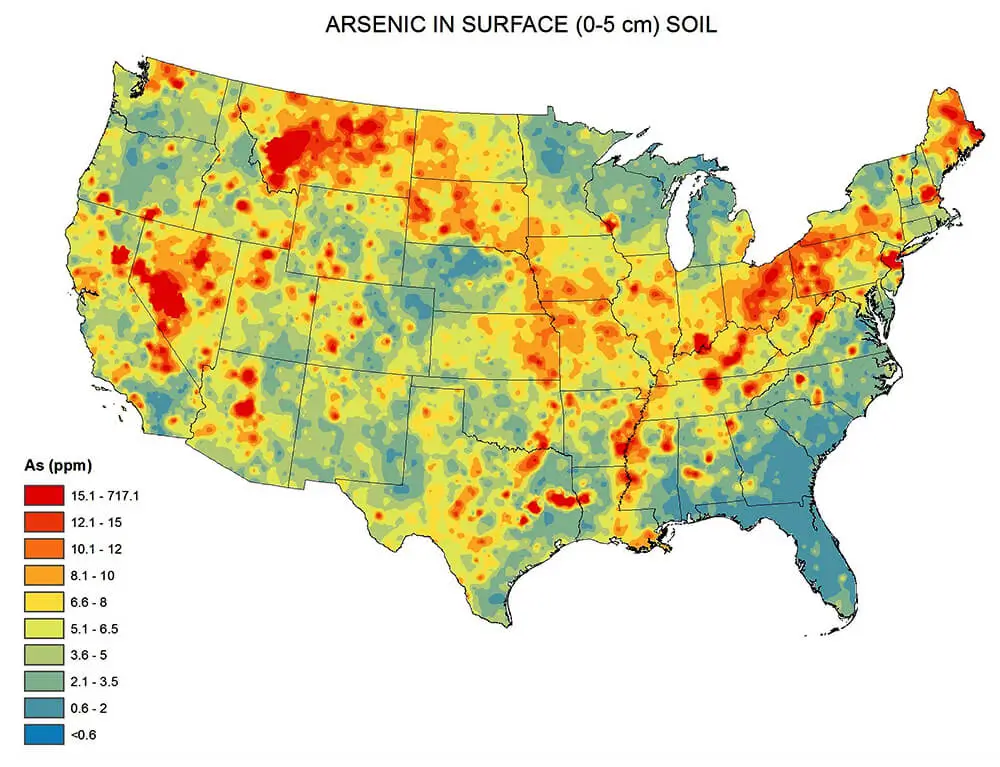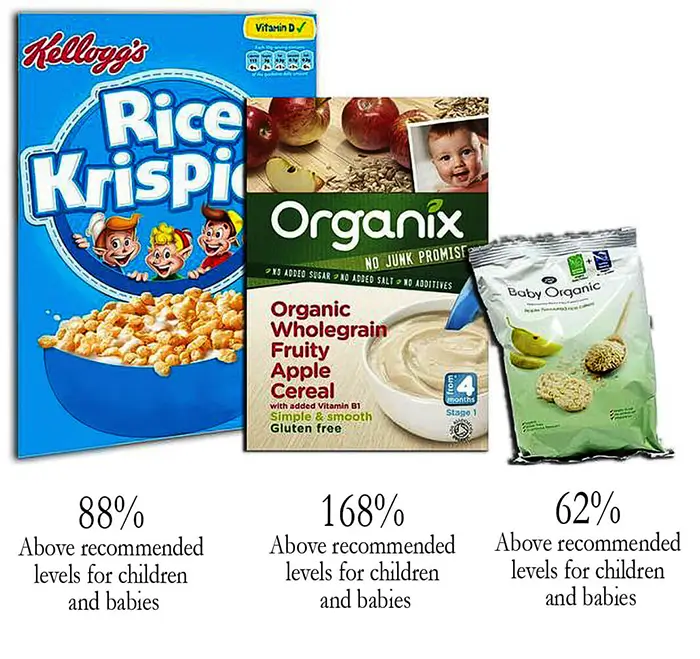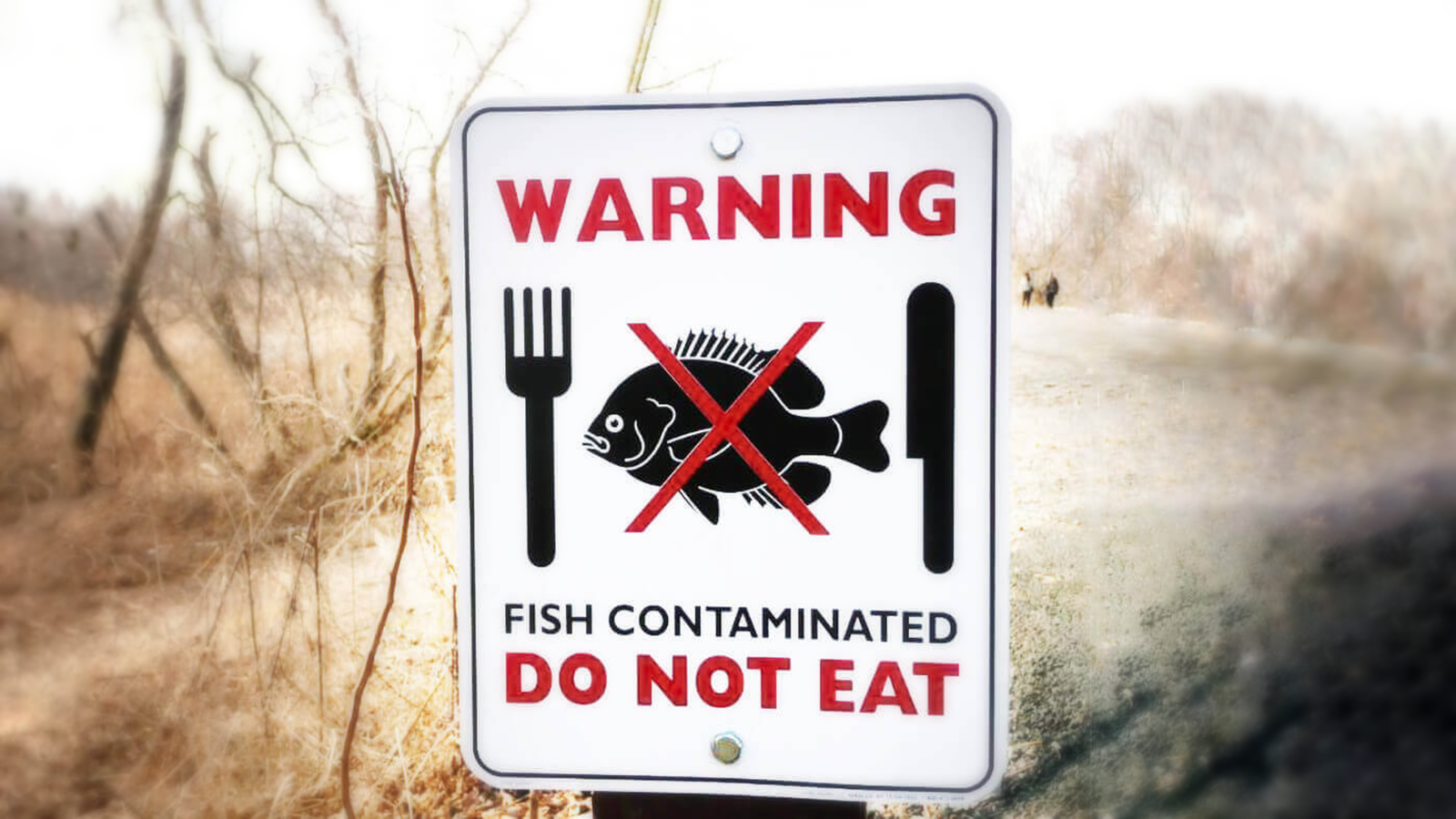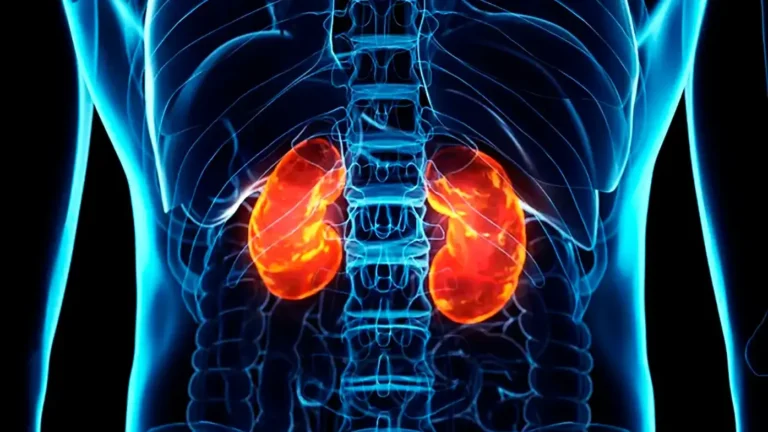Arsenic exposure and rice consumption- The most toxic grain of them all
From all known food sources rice absorbs the highest concentration of arsenic among all commonly eaten foods.
Milos Pokimica
Written By: Milos Pokimica
Medically Reviewed by: Dr. Xiùying Wáng, M.D.
Updated June 9, 2023Arsenic is a naturally occurring element that is found in water, air, food, and soil. It is also used in pesticides, different chemicals, tobacco, wood preservatives, in metal mining.
Most exposure comes from water. The water becomes contaminated underground by rocks that release arsenic. It can be found in groundwater, drinking water, lakes or reservoirs, and wells.
Some countries are more affected than others and some areas are more affected than others. Arsenic in drinking water is a really big problem in many countries around the world. China has a big problem with arsenic water pollution. India, Bangladesh, Chile, Vietnam, Taiwan, and the United States. (Naujokas et al., 2013) In some parts of the world the water supply is so polluted that WHO estimates are that for example in a highly affected area of Bangladesh, more than 21.4% of all deaths were attributed to high arsenic levels in drinking water (Argos et al., 2010). The problem with this toxin is that it does not have an odor, taste, or color.
Arsenic may also be found in foods, including rice and some fish. It can also enter the body by breathing dust containing arsenic, or through the skin, though this is not a major route of exposure.
Although top predatory fish is a significant source of exposure, from all known food sources rice absorbs the highest concentration among all commonly eaten foods. It contains between 10 to 20 times more arsenic for example than other cereal crops.
Because rice grows in flooded conditions arsenic in the soil is released and more readily available. That released arsenic will be absorbed by the rice plant, and some of it will end up in rice grains. Because arsenic is already naturally found in the soil, it will be absorbed regardless of farming practices. If there is pollution of water even if the rice is grown organically the concentrations will be high.
High exposure of people is reported in different areas of the world, especially in parts of Asia and South America. China and Bangladesh have a problem with arsenic leaching into drinking water and are countries that traditionally eat a rice-dominated diet. In some parts of China and Bangladesh drinking water is thoroughly contaminated with high levels of arsenic. From 2004, in the EU a stricter precautionary standard for maximum total arsenic of 10 µg/l in drinking water came into effect but to be fair EU never had a problem like China so for the EU it is easy to adopt strict standards where there are no problems in the first place.
Like any other poison, children are more exposed because they will typically consume more per unit of body weight as well as have more particular eating patterns and limited dietary choices. For instance, rice is used in many first foods. If we calculate dietary arsenic exposure in children per kilogram of body weight, it is estimated to be about on average 2- to 3-fold that of adults. High levels are found in most rice-based foods and drinks widely used for infants and young children. Low levels of arsenic impact fetuses or children on different levels like growth development, and immune development, and they impact IQ development as well. In 2004 one study was done in Bangladesh that showed that children that were exposed to arsenic in drinking water had much-lowered scores on standardized tests. In 2013 one study showed that pregnant women who were exposed to even tiny amounts of arsenic in drinking water had children that had significantly more chance of developing respiratory problems. In Sweden, their National Food Agency (SNFA) has an official recommendation that children under the age of six do not consume rice in any form, especially rice cakes. Rice cakes have more arsenic than any other rice product, and a recommendation for an adult is also to cut down on the consumption of rice cakes if they eat rice on regular basis. Children should have a balanced diet based on different grains as a source of carbohydrates and infants, and young children should avoid eating rice at all especially rice cakes and rice drinks. Prolonged exposure to arsenic in adults is associated with an increase in heart disease as well as lung, skin, and bladder cancers.
There are steps to take if we want to eat rice to lower the arsenic content, but it will vary depending on the type of rice, the way it was processed, the condition and place where it was grown, and the way it was cooked.
The highest concentration is in the bran. Rice bran should not be eaten at all so any product that was made out of it, for example, commercial rice milk would have higher concentrations.
There are methods of cooking to lower the level of finished rice.
The first method is to soak. When you soak the rice it will absorb water but also that will open up the grains structure, so some of the arsenic that is water-soluble will leach out from the rice to the liquid. When you soak the rice or beans throw away the water. Do not use it.
Also when the rice is cooked some of the arsenic will leach out to the water as well. So again do not let the water evaporate because the arsenic will be still in there. This is the traditional way of cooking. Cook the rice in the proper amount of water and then throw it away.
To recap, soak, drain, rinse with fresh water, cook with fresh water, and rinse again.
Basmati rice tends to contain less arsenic than other types, and brown rice tends to contain more because a big chunk of the arsenic is in the husk.
With just regular cooking of rice in a rice cooker or cooking to dryness without soaking 84% of arsenic will remain.
When one part of rice with five parts water is used, only 43% of the arsenic initially detected in the rice will remain.
The best method is to soak then rinse then do 5 to 1 cooking. That method will eliminate more than 80% of arsenic. And because arsenic occurs naturally, buying organic doesn’t generally help. Organic produce consumption does not necessarily impact the levels of metals or POPs. If there is arsenic in the soil, it is still “organic” produce.
References:
- Naujokas, M. F., Anderson, B., Ahsan, H., Aposhian, H. V., Graziano, J. H., Thompson, C., & Suk, W. A. (2013). The broad scope of health effects from chronic arsenic exposure: update on a worldwide public health problem. Environmental health perspectives, 121(3), 295–302. https://doi.org/10.1289/ehp.1205875
- Argos, M., Kalra, T., Rathouz, P. J., Chen, Y., Pierce, B., Parvez, F., Islam, T., Ahmed, A., Rakibuz-Zaman, M., Hasan, R., Sarwar, G., Slavkovich, V., van Geen, A., Graziano, J., & Ahsan, H. (2010). Arsenic exposure from drinking water, and all-cause and chronic-disease mortalities in Bangladesh (HEALS): a prospective cohort study. Lancet (London, England), 376(9737), 252–258. https://doi.org/10.1016/S0140-6736(10)60481-3
Related Posts
Do you have any questions about nutrition and health?
I would love to hear from you and answer them in my next post. I appreciate your input and opinion and I look forward to hearing from you soon. I also invite you to follow us on Facebook, Instagram, and Pinterest for more diet, nutrition, and health content. You can leave a comment there and connect with other health enthusiasts, share your tips and experiences, and get support and encouragement from our team and community.
I hope that this post was informative and enjoyable for you and that you are prepared to apply the insights you learned. If you found this post helpful, please share it with your friends and family who might also benefit from it. You never know who might need some guidance and support on their health journey.
– You Might Also Like –

Learn About Nutrition
Milos Pokimica is a doctor of natural medicine, clinical nutritionist, medical health and nutrition writer, and nutritional science advisor. Author of the book series Go Vegan? Review of Science, he also operates the natural health website GoVeganWay.com
Medical Disclaimer
GoVeganWay.com brings you reviews of the latest nutrition and health-related research. The information provided represents the personal opinion of the author and is not intended nor implied to be a substitute for professional medical advice, diagnosis, or treatment. The information provided is for informational purposes only and is not intended to serve as a substitute for the consultation, diagnosis, and/or medical treatment of a qualified physician or healthcare provider.NEVER DISREGARD PROFESSIONAL MEDICAL ADVICE OR DELAY SEEKING MEDICAL TREATMENT BECAUSE OF SOMETHING YOU HAVE READ ON OR ACCESSED THROUGH GoVeganWay.com
NEVER APPLY ANY LIFESTYLE CHANGES OR ANY CHANGES AT ALL AS A CONSEQUENCE OF SOMETHING YOU HAVE READ IN GoVeganWay.com BEFORE CONSULTING LICENCED MEDICAL PRACTITIONER.
In the event of a medical emergency, call a doctor or 911 immediately. GoVeganWay.com does not recommend or endorse any specific groups, organizations, tests, physicians, products, procedures, opinions, or other information that may be mentioned inside.
Editor Picks –
Milos Pokimica is a health and nutrition writer and nutritional science advisor. Author of the book series Go Vegan? Review of Science, he also operates the natural health website GoVeganWay.com
Latest Articles –
Top Health News — ScienceDaily
- The overlooked nutrition risk of Ozempic and Wegovyon February 4, 2026
Popular weight-loss drugs like Ozempic and Wegovy can dramatically curb appetite, but experts warn many users are flying blind when it comes to nutrition. New research suggests people taking these medications may not be getting enough guidance on protein, vitamins, and overall diet quality, increasing the risk of muscle loss and nutrient deficiencies.
- A 25-year study found an unexpected link between cheese and dementiaon February 4, 2026
A massive Swedish study tracking nearly 28,000 people for 25 years found an unexpected link between full-fat dairy and brain health. Among adults without a genetic risk for Alzheimer’s, eating more full-fat cheese was associated with a noticeably lower risk of developing the disease, while higher cream intake was tied to reduced dementia risk overall. The findings challenge decades of low-fat dietary advice but come with important caveats.
- MIT’s new brain tool could finally explain consciousnesson February 4, 2026
Scientists still don’t know how the brain turns physical activity into thoughts, feelings, and awareness—but a powerful new tool may help crack the mystery. Researchers at MIT are exploring transcranial focused ultrasound, a noninvasive technology that can precisely stimulate deep regions of the brain that were previously off-limits. In a new “roadmap” paper, they explain how this method could finally let scientists test cause-and-effect in consciousness research, not just observe […]
- Why heart disease risk in type 2 diabetes looks different for men and womenon February 4, 2026
Scientists are digging into why heart disease risk in type 2 diabetes differs between men and women—and sex hormones may be part of the story. In a large Johns Hopkins study, men with higher testosterone had lower heart disease risk, while rising estradiol levels were linked to higher risk. These hormone effects were not seen in women. The results point toward more personalized approaches to heart disease prevention in diabetes.
- Sound machines might be making your sleep worseon February 4, 2026
Sound machines may not be the sleep saviors many believe. Researchers found that pink noise significantly reduced REM sleep, while simple earplugs did a better job protecting deep, restorative sleep from traffic noise. When pink noise was combined with outside noise, sleep quality dropped even further. The results suggest that popular “sleep sounds” could be doing more harm than good—particularly for kids.
- This unexpected plant discovery could change how drugs are madeon February 3, 2026
Plants make chemical weapons to protect themselves, and many of these compounds have become vital to human medicine. Researchers found that one powerful plant chemical is produced using a gene that looks surprisingly bacterial. This suggests plants reuse microbial tools to invent new chemistry. The insight could help scientists discover new drugs and produce them more sustainably.
- A hidden cellular process may drive aging and diseaseon February 3, 2026
As we age, our cells don’t just wear down—they reorganize. Researchers found that cells actively remodel a key structure called the endoplasmic reticulum, reducing protein-producing regions while preserving fat-related ones. This process, driven by ER-phagy, is tied to lifespan and healthy aging. Because these changes happen early, they could help trigger later disease—or offer a chance to stop it.
PubMed, #vegan-diet –
- Diet type and the oral microbiomeon February 2, 2026
CONCLUSION: The diet-oral microbiome-systemic inflammation axis is bidirectional and clinically relevant. Understanding both direct ecological regulation and indirect metabolic effects is essential to support precision nutrition strategies aimed at maintaining oral microbial balance and systemic inflammatory risk mitigation.
- Consensus document on healthy lifestyleson January 22, 2026
Proteins are a group of macronutrients that are vital to our lives, as they perform various functions, including structural, defensive and catalytic. An intake of 1.0-1.2 g/kg/body weight per day would be sufficient to meet our needs. Carbohydrate requirements constitute 50 % of the total caloric value and should be obtained mainly in the form of complex carbohydrates. In addition, a daily intake of both soluble and insoluble fiber is necessary. Regular consumption of extra virgin olive oil […]
- Vitamin B12 and D status in long-term vegetarians: Impact of diet duration and subtypes in Beijing, Chinaon January 21, 2026
CONCLUSIONS: This study reveals a dual challenge among Beijing long-term vegetarians: vitamin B12 deficiency was strongly associated with the degree of exclusion of animal products from the diet (veganism), while vitamin D deficiency was highly prevalent and worsened with longer diet duration. The near-universal vitamin D deficiency observed in this study suggests that, in the Beijing context, the risk may extend beyond dietary choice, potentially reflecting regional environmental factors;…
- Nutritional evaluation of duty meals provided to riot police forces in Germanyon January 13, 2026
Background: The primary role of the German riot police is maintaining internal security. Due to challenging working conditions, riot police forces face an elevated risk of various diseases. During duty, forces are provided with meals. A balanced diet can reduce the risk of some of these diseases and contribute to health-promoting working conditions. Aim: First evaluation of the nutritional quality of duty meals in Germany based on German Nutrition Society recommendations (DGE). Methods: In…
- Iodineon January 1, 2006
Iodine is an essential trace nutrient for all infants that is a normal component of breastmilk. Infant requirements are estimated to be 15 mcg/kg daily in full-term infants and 30 mcg/kg daily in preterm infants.[1] Breastmilk iodine concentration correlates well with maternal urinary iodine concentration and may be a useful index of iodine sufficiency in infants under 2 years of age, but there is no clear agreement on a value that indicates iodine sufficiency, and may not correlate with […]
Random Posts –
Featured Posts –
Latest from PubMed, #plant-based diet –
- From paddy soil to dining table: biological biofortification of rice with zincby Lei Huang on February 4, 2026
One-third of paddy soils are globally deficient in zinc (Zn) and 40% of Zn loss in the procession from brown rice to polished rice, which results in the global issue of hidden hunger, e.g., the micronutrient deficiencies in the rice-based population of developing countries. In the recent decades, biofortification of cereal food crops with Zn has emerged as a promising solution. Herein, we comprehensively reviewed the entire process of Zn in paddy soil to human diet, including the regulatory…
- Molecular Characterization of Tobacco Necrosis Virus A Variants Identified in Sugarbeet Rootsby Alyssa Flobinus on February 3, 2026
Sugarbeet provides an important source of sucrose; a stable, environmentally safe, and low-cost staple in the human diet. Viral diseases arising in sugarbeet ultimately impact sugar content, which translates to financial losses for growers. To manage diseases and prevent such losses from occurring, it is essential to characterize viruses responsible for disease. Recently, our laboratory identified a tobacco necrosis virus A variant named Beta vulgaris alphanecrovirus 1 (BvANV-1) in sugarbeet…
- Nutrition in early life interacts with genetic risk to influence preadult behaviour in the Raine Studyby Lars Meinertz Byg on February 3, 2026
CONCLUSIONS: Nutrition in early life and psychiatric genetic risk may interact to determine lasting child behaviour. Contrary to our hypothesis, we find dietary benefits in individuals with lower ADHD PGS, necessitating replication. We also highlight the possibility of including genetics in early nutrition intervention trials for causal inference.
- Effect of the gut microbiota on insect reproduction: mechanisms and biotechnological prospectsby Dilawar Abbas on February 2, 2026
The insect gut microbiota functions as a multifunctional symbiotic system that plays a central role in host reproduction. Through the production of bioactive metabolites, gut microbes interact with host hormonal pathways, immune signaling, and molecular regulatory networks, thereby shaping reproductive physiology and fitness. This review summarizes recent advances in understanding how gut microbiota regulate insect reproduction. Accumulating evidence demonstrates that microbial metabolites…
- Rationale and design of a parallel randomised trial of a plant-based intensive lifestyle intervention for diabetes remission: The REmission of diabetes using a PlAnt-based weight loss InteRvention…by Brighid McKay on February 2, 2026
CONCLUSIONS: This trial will provide high-quality clinical evidence on the use of plant-based ILIs to address the epidemics of obesity and diabetes to inform public health policies and programs in Canada and beyond.
- Diet type and the oral microbiomeby Daniel Betancur on February 2, 2026
CONCLUSION: The diet-oral microbiome-systemic inflammation axis is bidirectional and clinically relevant. Understanding both direct ecological regulation and indirect metabolic effects is essential to support precision nutrition strategies aimed at maintaining oral microbial balance and systemic inflammatory risk mitigation.






















